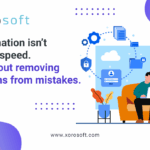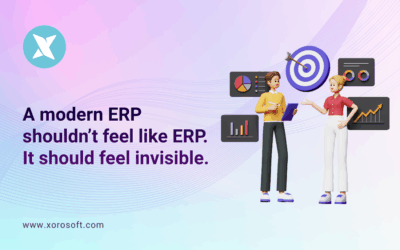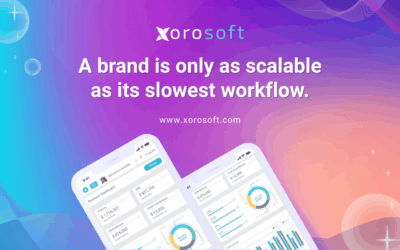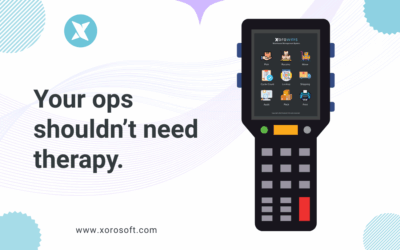
Introduction to ERP systems and their importance in business operations
As an experienced business professional, I understand the critical role that Enterprise Resource Planning (ERP) systems play in driving organizational efficiency and profitability. In today’s fast-paced business landscape, having a robust ERP solution is essential for managing the complex web of sales, inventory, accounting, and other core business processes.
One ERP system that has caught my attention is XoroERP, developed by the software company Xorosoft. In this comprehensive article, I’ll delve into the benefits and limitations of using XoroERP for sales and order management, helping you determine if it’s the right fit for your business.
Understanding XoroERP: An Overview of the Xorosoft ERP Solution
XoroERP is a comprehensive ERP system designed to streamline and automate a wide range of business functions, from sales and inventory management to accounting and reporting. Developed by the reputable software company Xorosoft, this ERP solution is known for its user-friendly interface, powerful features, and scalability to meet the needs of businesses of all sizes.
One of the key advantages of XoroERP is its modular structure, which allows organizations to implement only the specific modules they require, such as sales, procurement, or finance. This flexibility ensures that businesses can tailor the system to their unique needs, avoiding the implementation of unnecessary functionalities and reducing overall costs.
The Benefits of Using XoroERP for Sales and Order Management
When it comes to sales and order management, XoroERP offers a range of powerful features that can significantly improve efficiency and profitability. Let’s explore some of the key benefits:
- Centralized Sales Pipeline Management: XoroERP provides a centralized platform for managing the entire sales pipeline, from lead generation to order fulfillment. This allows sales teams to track opportunities, generate quotes, and monitor the status of orders in real-time, leading to improved visibility and better decision-making.
- Automated Order Processing: The system’s order management module streamlines the entire order-to-cash process, from order entry to invoicing and payment processing. This automation reduces manual errors, accelerates order fulfillment, and enhances customer satisfaction.
- Robust Reporting and Analytics: XoroERP’s comprehensive reporting and analytics capabilities provide valuable insights into sales performance, customer behavior, and revenue trends. This data-driven approach empowers sales managers to make informed decisions, identify growth opportunities, and optimize sales strategies.
- Seamless Integration with Other Business Functions: XoroERP seamlessly integrates with other core business functions, such as inventory management and accounting. This ensures a unified view of the organization, facilitating cross-functional collaboration and data-driven decision-making.
- Improved Inventory Control: The system’s inventory management module helps businesses maintain optimal stock levels, minimize stockouts, and efficiently manage the movement of goods. This leads to improved customer service, reduced carrying costs, and enhanced profitability.
Key Features of XoroERP for Inventory Management
In addition to its sales and order management capabilities, XoroERP offers a comprehensive suite of features for effective inventory management. Some of the key features include:
- Real-time Inventory Tracking: XoroERP provides real-time visibility into stock levels, enabling businesses to make informed decisions about purchasing, production, and order fulfillment.
- Automated Replenishment: The system’s advanced forecasting algorithms and reorder point calculations help automate the replenishment process, ensuring that businesses maintain optimal inventory levels.
- Lot and Batch Tracking: XoroERP’s lot and batch tracking functionality allows businesses to effectively manage the lifecycle of their products, from receipt to sale, improving traceability and quality control.
- Warehouse Management: The system’s warehouse management module helps businesses optimize storage, picking, and packing processes, leading to increased efficiency and reduced operational costs.
- Barcode Integration: XoroERP seamlessly integrates with barcode scanning technologies, streamlining inventory management tasks such as receiving, picking, and cycle counting.
Streamlining Accounting Processes with XoroERP
One of the key advantages of XoroERP is its comprehensive accounting module, which helps businesses streamline their financial management processes. Some of the key features include:
- Automated Invoicing and Billing: XoroERP’s invoicing and billing functionality automates the generation of invoices, streamlining the accounts receivable process and improving cash flow management.
- Integrated General Ledger: The system’s general ledger module provides a centralized repository for all financial transactions, enabling businesses to generate accurate financial reports and statements.
- Multi-currency and Tax Management: XoroERP supports multiple currencies and tax regimes, making it easier for businesses to manage their global operations and comply with local regulations.
- Budgeting and Forecasting: The system’s budgeting and forecasting tools help businesses plan and manage their financial resources more effectively, leading to improved financial decision-making.
- Audit Trail and Compliance: XoroERP’s robust audit trail and compliance features ensure that businesses maintain accurate financial records and meet regulatory requirements.
The Limitations of XoroERP: Weighing the Pros and Cons
While XoroERP offers a comprehensive suite of features and functionalities, it’s important to consider the potential limitations and drawbacks of the system. Here are some of the key pros and cons to weigh:
Pros:
- Modular and scalable design, allowing for tailored implementation
- Robust sales and order management capabilities
- Effective inventory management and control
- Streamlined accounting and financial management
- User-friendly interface and intuitive navigation
- Reliable and secure cloud-based deployment
Cons:
- Relatively higher upfront implementation costs compared to some competitors
- Potential for a steep learning curve for users, especially those unfamiliar with ERP systems
- Limited customization options for advanced users, who may require more flexibility
- Potential integration challenges with legacy systems or third-party applications
- Ongoing maintenance and support requirements, which may add to the total cost of ownership
Alternatives to XoroERP: Exploring Other ERP Systems for Sales and Order Management
While XoroERP is a powerful ERP solution, it’s not the only option available in the market. Depending on your business requirements and budget, you may want to consider exploring other ERP systems that cater to sales and order management needs. Some popular alternatives include:
- SAP Business One: A comprehensive ERP solution designed for small and medium-sized businesses, offering robust sales, inventory, and financial management capabilities.
- Microsoft Dynamics 365: A cloud-based ERP and CRM suite that provides integrated tools for sales, customer service, and financial management.
- Oracle NetSuite: A leading cloud-based ERP system that offers a wide range of modules, including sales, inventory, and financial management.
- Epicor ERP: A highly customizable ERP solution that excels in manufacturing, distribution, and service-based industries.
Implementing XoroERP in Your Business: Tips and Best Practices
If you’ve decided that XoroERP is the right ERP solution for your business, it’s essential to approach the implementation process with a well-planned strategy. Here are some tips and best practices to consider:
- Conduct a thorough needs assessment: Carefully evaluate your current business processes, pain points, and future growth plans to ensure that XoroERP aligns with your requirements.
- Engage key stakeholders: Involve cross-functional teams, including sales, operations, and finance, to ensure that the implementation addresses the needs of all departments.
- Develop a comprehensive implementation plan: Create a detailed project plan that outlines the timeline, resource requirements, and milestones for a successful XoroERP deployment.
- Provide comprehensive training: Invest in comprehensive training for your employees to ensure that they are comfortable using the system and can maximize its benefits.
- Continuously monitor and optimize: Regularly review the system’s performance, gather user feedback, and make necessary adjustments to optimize the XoroERP implementation.
Conclusion: Is XoroERP the Right ERP Solution for Your Sales and Order Management Needs?
In conclusion, XoroERP is a powerful ERP system that offers a comprehensive suite of features and functionalities to streamline sales, order management, inventory control, and accounting processes. Its modular design, user-friendly interface, and robust reporting capabilities make it an attractive option for businesses of all sizes.
However, as with any ERP system, it’s essential to carefully evaluate the pros and cons, as well as explore alternative solutions, to ensure that XoroERP is the best fit for your specific business requirements. By taking a strategic approach to the implementation process and leveraging the system’s capabilities, you can unlock the full potential of XoroERP and drive significant improvements in your sales and order management operations.
If you’re interested in learning more about how XoroERP can benefit your sales and order management processes, I encourage you to Book a Demo with Xorosoft. Their team of experts will be happy to provide a personalized demonstration and answer any questions you may have.









